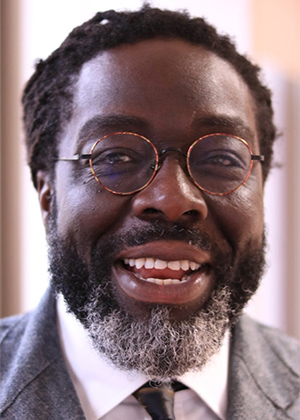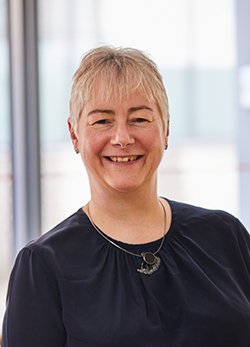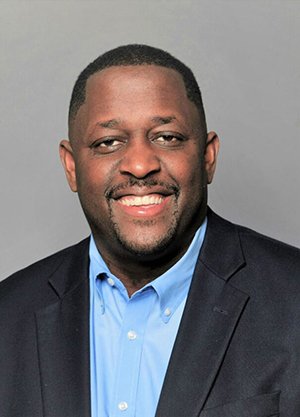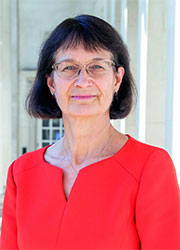
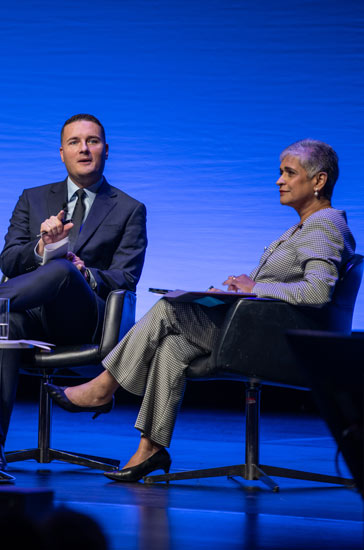
Influencing the 10 Year Health Plan
RCGP members will know Professor Dame Helen Stokes-Lampard best for her tenure as College Chair between 2016-2019, and previously its Honorary Treasurer. She subsequently became Chair of the Academy of Medical Royal Colleges, founding Chair of the National Association for Social Prescribing, and an NHS England board member – all whilst maintaining academic positions at the University of Birmingham and working as a GP partner at the Cloisters (later Westgate) Medical Practice in Lichfield.
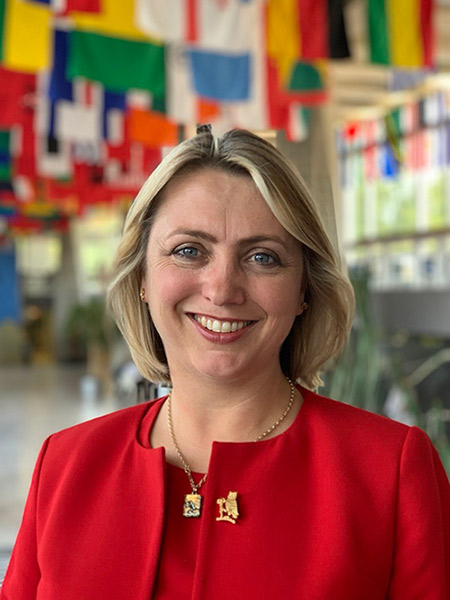
As such a prominent figure on the UK health scene, it came as a shock to many when after 22 years as an NHS GP (and several previously in Obs and Gynae before it) she sold up, packed up and headed more than 11,000 miles down under to New Zealand.
We’re speaking just over 100 days into her new role as Chief Medical Officer with responsibility for the doctor workforce for Health New Zealand/Te Whatu Ora (an equivalent body to NHS England). It’s 6pm in London, and 7am in Auckland, so Helen is just about to start her day. She’s in a slightly non-descript basement office, which quickly transforms into the standard background for Health New Zealand which she has to use for all calls; it’s a bit different from the sunny, sea view scenes from the balcony in the ‘upside down’ house she’s renting with her husband Paul, that she’s shared in photos.
Helen has got over her jet lag but not quite the culture shock of living and working in a new country and navigating a different healthcare system. And, at the time of speaking, after four months, her belongings from the UK – including numerous pairs of her trademark shoes - still hadn’t arrived (they have since).
“It’s been a heck of a time,” she says, “but I’m relishing the challenges, I’m energised by the people I’m meeting, and I’m sobered by how much there is to be done.”
As well as getting to grips with her new life and role, Helen has just started back practising as a sessional GP in a small practice close to where she’s currently living. “I didn’t miss frontline clinical practice at first,” she explains, “but there’s a remarkable satisfaction you get from interaction with patients, and it feels great to be back in practice once again. I won’t be able to do many sessions because my role at Health New Zealand is pretty all-consuming, but I think it’s important to keep my registration up, and it gives me that credibility with colleagues out here.”
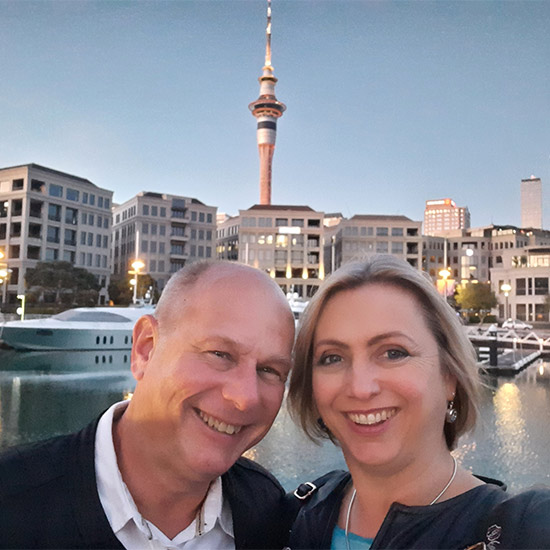
Retaining – or gaining – credibility has been one of the key challenges for Helen as she shifts from being well known across the sector in the UK, able to drop key decision-makers an SMS if she needed their attention, to being relatively unknown in a new country.
“I haven’t got the credibility. I’m not known and trusted here, so I’m starting from a blank slate. People Googled me and saw I’d done some interesting things, but to use a cricketing metaphor, I had no runs on the board,” she explains. Not even the damehood awards her automatic credit: “it carries a sort of respect – they use the Māori term ‘mana’ here – but it doesn’t bring trust, and to get things done you have to have trust.”
She says that, partly because of the scale of New Zealand – it has a population of around 5.2 million, so slightly less than Scotland but spread over an area more than three times as big – there’s a ‘pick up the phone and call someone’ mentality to getting things done, which is difficult for a newcomer to integrate into. “I’ve been working on getting to know an awful lot of people,” she says.
Her other big challenge has, unsurprisingly, been getting to grips with a new and ‘incredibly complex’ health system, and a new way of doing things from Government-level downwards. A parliamentary cycle in New Zealand is three years, and their voting system of proportional representation means, invariably, a Coalition government.
“Things change frequently,” explains Helen, who is already working under her second minister for health. “Health New Zealand came into being in July 2022, and I think there have already been four different Health ministers in that time.” The name of the organisation itself is an example of fluctuation; initially called Te Whatu Ora/Health New Zealand, using the indigenous Māori term first, then this was reversed.
“It means you have to be prepared for things changing quickly, and priorities shifting fast,” she says.
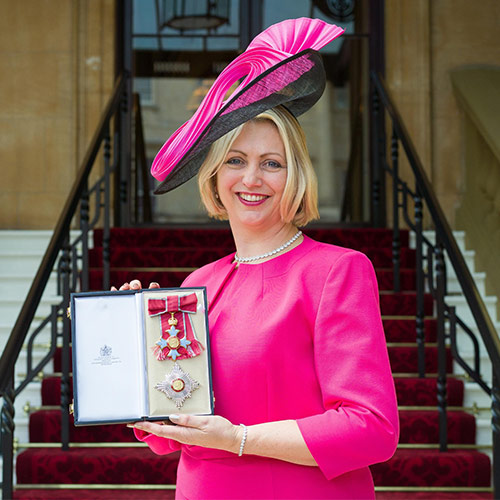
Helen’s role within Health New Zealand is one of six Chief Medical Officers. Whilst her remit is the doctor workforce, her counterparts cover midwifery, nursing, allied scientific and technical professions, mental health and quality and patient safety – although she says there is often overlap. They all report into an overarching Chief Clinical Officer.
The purpose of her role is to support the medical workforce, help design it for the future and provide leadership for the Chief Medical Officers of each of New Zealand’s 18 districts.
She describes it as ‘more of the medical director at NHS England role, than the Chris Whitty government CMO role’ but she does retain responsibility for some of the more controversial clinical issues, including 'hard to diagnose and manage' conditions and rare disorders. One of her aspirations in her role is to embed some new structures across the health system that will better suit the needs of patients with uncommon conditions.
In terms of how the health system differs as a whole to the NHS: “the commissioning of primary care is not dissimilar to the UK, but the financial model is more like the Republic of Ireland [there’s a fee to visit the GP]. The structure is similar, primary care having a gatekeeping role, so what GPs do is very similar to the UK…but the divide between primary and secondary care seems greater here.
“Quite a lot of commercial companies and not-for-profit organisations run clusters of general practices here,” Helen continues, “it’s created a perception, unfairly in my opinion, of GPs being seen as another completely external contractor rather than part of the core healthcare system. I’ve pushed back when I’ve heard comments implying GPs are just out to make profits; I know the reality is that they’ve ended up in those financial arrangements to survive the current context.”
This leads, Helen says, to ‘a sense of everything going to hospitals.’ “There are always more consultants employed when initiatives launch, but rarely more GPs, exactly the same narrative as I left in the UK. The perception is that it’s easier to put money into secondary care…the central organisation always being wary of money going to the right places if it’s given to primary and community care.”
‘Unpicking this’ and ‘reducing misunderstanding’ is another of her aspirations in the role.
Whilst open and realistic about the challenges she faces, one area Helen that has felt at home is doing media; a duty she relished as Chair of the RCGP (see photo below), and she’s speaking to GP Frontline off the back of a ‘big radio interview’ with Radio New Zealand about primary care. The big difference, though, is that she’s now seen as a ‘poacher turned gamekeeper’ using the media advocate for the healthcare system, instead of lobbying it.
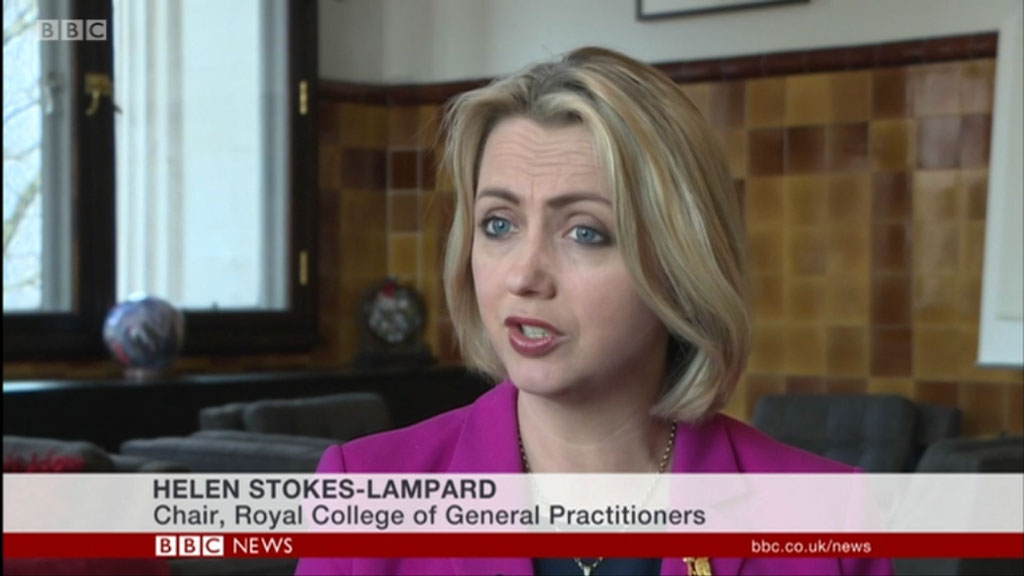
“I’m doing a modest amount,” she says, “although my name goes on a lot of press releases. There’s an insatiable desire for health-related content in the media here.” And whilst she says the journalists ‘really dig down’ and ‘take no nonsense’ she’s been pleasantly surprised by the appetite for good news. “In many ways, I’ve found it a kinder country than the UK,” she says, “they often have a good news story on the TV news to bring some joy to everyone’s day, which I like.”
She’s also been struck by the openness towards holistic healthcare and wellbeing she’s experienced, which she says is grounded in Māori culture. “There’s a focus on family, and weaving wellness into everything we do,” she explains, “health and care is much more than what healthcare services can deliver…it’s understanding of society, community and my interaction with others. It dovetails beautifully with my personal interest in social prescribing.”
The unique relationship New Zealand has with its indigenous Māori people is also the reason Helen believes the conversation around health inequalities is ‘more mature’ than in the UK. The 1840 Treaty of Waitangi established a foundation for Māori legal rights and obligations that influences all aspects of policy and service delivery, including healthcare. It means the health needs of Māori people must be actively considered in all decisions yet, despite this, significant health inequities persist, particularly for Māori and Pacific Peoples, driven by complex structural and social determinants. “There is a lot of work to do – but there’s a mature conversation about social determinants of health and an open dialogue about it, which is refreshing to be part of.”
Helen says that ‘by far’ the hardest thing about making her move has been ‘leaving behind family and friends’ (she’s also missing her print version of her BJGP) but she felt that she ‘needed to stretch herself’ and there were no ‘obvious opportunities emerging’ for her in the UK.
“I’m keen to be part of the solution here for a while. I want frontline clinicians to feel their voice is being heard, that their views matter and that they really do have influence. Recent major restructures have reduced the ability for clinicians to feel heard; there’s a sense of disempowerment I want to help reverse… I also want to be a very active and positive force in looking at the health workforce plan and facilitating a transparent conversation about the workforce the nation wants and needs, what it can afford, and how best to utilise the resources we’ve got.”
But is it forever? “I took this on with the intention of giving it my best shot,” she says, “It’s certainly not a short-term job, but I’m not closing the door on coming back to the UK, at all.”
Read more
Thank you for your feedback. Your response will help improve this page.
